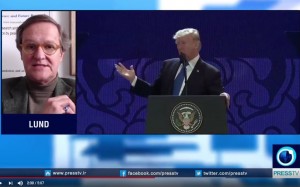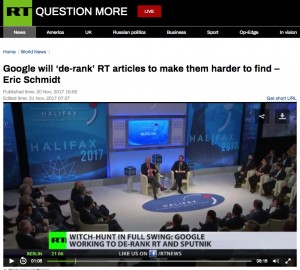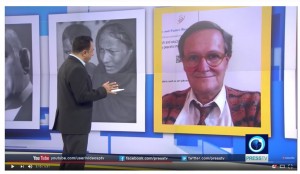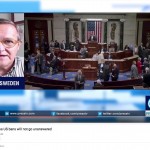Archive for the ‘Western decline’ Category
TFF PressInfo # 438: Aleppo’s Liberation one year ago – Anybody ashamed today?
By Jan Oberg
December 12, 2017, marks the anniversary of the liberation – the West called it fall – of Aleppo in Syria. What happened is conveniently forgotten today by the West.
Some of us can’t and won’t forget what was both world, regional and local history.
Important for Syria, for the West and for the future world order – for at least 5 reasons.
1. The Western mainstream media’s deceptive – constructed, ignorant, or both – narrative since 2011 was debunked.
Perspectives that media and political decision-makers deliberately omitted (remember omitted stuff is more important than fake):
• History and the colonialists’ role in Syria.
• The immense complexity of the Syrian society.
• Syria as a 7000 year-old civilisation and as end of the Silk Road.
• The decades-long conflicts underlying the violence, since CIA’s coup in 1949.
• The Western-driven regime change policies years since before 2011.
• Other causes of the conflicts than “Assad the dictator and his regime” such as environmental crisis, oil and gas, and its being partly occupied since 1967 by Israel.
• That nothing of the conflict complexity can de facto be reduced to a matter of one man’s role – like it couldn’t with Milosevic (now exonerated), Saddam, or Ghadafi;
• That this may have been a civil war for about a week but then almost 7 years of international aggression by thousands of foreign groups, Western governments/arm suppliers and their Saudi-led allies.
• Syria’s right under such circumstances to self-defence according to Article 51 of the UN Charter.
• The major role in the utter destruction of Syria played by NATO countries, Turkey particularly when it comes to Aleppo, and Western allies such as Saudi Arabia and the Gulf states; all was simply ”the dictator/regime killing his own people”…
• That Russia and Iran was the only foreign powers legitimately present according to international law.
• That the UN was sidelined – again – and tasked with the impossible role of making peace out of such member state policies.
• The media interest in Syria disappeared immediately after Aleppo’s liberation as if orchestrated by one conductor. Silence.
• And Facebook and Google Search changes algorithms…
The media coverage stopped there and then – like musicians under a conductor, obeying the tiniest move.
2. It marked the end of the West’s attempt at regime change since 2012
It had started formally on Dec 12, 2012 – on the day four years earlier, in Marrakesh. “Friends (!) of Syria” declared Assad’s government illegitimate and set up a Syrian National Council – without, of course, asking the Syrian people it was supposed to represent. Here’s AlJazeera’s/AFP’s coverage of that cruel decision.
The West has most to lose in the media war with Russia
Jan Oberg comments on the tit-for-tat policies of the U.S. and Russia when they force each other to register their media as “foreign agents”.
It is a weak U.S. that cannot accept that it no longer has a virtual monopoly on shaping perceptions of the world. Just find your role and accept that there are other angles and priorities than those you’ve dominated the global information structure with fore decades.
As we have said before, censorship is not the way – educating people to sense the difference between real and fake news and look for omitted news, angles and facts – in contrast – is a solution.
What makes Google’s Eric Schmidt so afraid? And what should he be afraid of?
By Jan Oberg
OK, it’s from Russia Today so you should of course not trust it but somehow this video and text and the man in it seems quite factual, not fake and obviously not omitted.
It documents that Eric Emerson Schmidt, the Executive Chairman of Alphabet – an American multinational conglomerate that owns a lot and among them Google – is working on “de-ranking” alleged propaganda outlets such as Russia Today, RT – the world’s third largest television network – and Sputnik.
Who is Eric Schmidt?
On the Wikipedia link you can read more about Mr. Schmidt, one of the richest person on earth, an advocate of net neutrality, a corporate manager and owner of a lot, a collector of modern art, etc. And you can read about his heavy involvement with Hillary Clinton’s recent campaign and the Obama administration and about Schmidt’s involvement with Pentagon, too.
Eric Emerson Schmidt’s name is associated with the world’s largest and most systematic data collecting search engine, Google, that millions upon millions use. School children, teachers, parents, media people, politicians and you and I all daily “google” what we need to know.
While we do that, Google tracks everything about us and if you are searching for a thing to buy, say a camera, be sure that camera ads will shortly after turn up on your screen. And they know everything we are interested in through our “googling” including political interests and hobbies.
Playing God
This very powerful corporate leader with a open political orientation has decided Read the rest of this entry »
The World – Where Are You Heading?
By Johan Galtung
Liu Xiaobo passed away. What is the – not so hidden – truth about him?
Answer: His speeches and writings show enthusiasm for the 100-year English colonization of Hong Kong, wishing 300 years colonization of China, celebrating the US war in Afghanistan, hoping for atomic weapons. He got the Nobel Peace Prize for democratization of China, had the freedom of speech, but the prize communicated as a provocation. The prize could easily have been given to their Charter, not to Liu Xiaobo.
Norway’s security – what are the threats?
Answer: Given the location, an invasion by USA or Russia to prevent the other from doing so. The situation is reminiscent of the threat from England, Germany and USSR to prevent one of the other from doing so in 1940; what happened was England and Germany violating Norwegian neutrality, fighting a battle on Norwegian territory. USSR nothing till they fought German troops in the extreme North losing more soldiers to liberate Norway than Norway during the war, stopping when the Norwegian government in refuge in London told them to do so, thereby making it possible for Germany to destroy Northern Norway.
Norway’s defense today – what is the story?
Answer: A one-sided offensive capacity directed at Russia for a first or second strike, the coast and inland defenseless with 248 of 249 districts (“Heimevernet“, home land defense) incapable of their job.
Why Russia as Chosen Enemy; the real story, the alternatives? Read the rest of this entry »
The West – Where Are You Heading?
11 September 2017
A world map shows the West is big, from the Atlantic to the Pacific oceans, from the Arctic Ocean to the Mediterranean-Black Sea-Russian border; but not that big. However, that is only Europe. Add Anglo-America, USA-Canada, from the Pacific to the Atlantic oceans, from the Arctic Ocean to Mexico. The West is huge, enormous.
It covers geographically the Northern Arctic and temperate zones.
It houses religiously the three Christianities, much of Judaism, but not Islam. Muslims and all others count as minorities, here and there.
It is the seat of another major faith, Enlightenment: humanism-liberalism-marxism-nationalism-statism-capitalism-regionalism.
It is the seat of the major IGOs, NGOs and TNCs in the world.
It identifies West as “developed”, and Rest as “developing”.
West has attacked, invaded, conquered, colonized almost all the Rest of the world (China only partly, Japan only recently, from 1945).
The overwhelming majority of wars are intra-West, or West-Rest. Read the rest of this entry »
Welcoming the Fascists to Charlottesville
By David Swanson
Here is the original: Welcoming the Fascists to Charlottesville
August 10, 2017
I have mixed emotions about the fact that I’ll be missing the latest big fascism rally here in Charlottesville, because I’ll be elsewhere participating in kayak trainings for an upcoming Flotilla to the Pentagon for Peace and the Environment.
I’m delighted to miss the fascism and the racism and the hatred and the gun-toting lunacy. I’m sorry to miss being here to speak against it.
I’m hopeful that there might be something resembling a disciplined nonviolent and nonhateful opposition presence, but strongly suspect that a small number of violent and hateful opponents of racism will ruin that.
I’m thrilled that taking down a racist war monument has gone mainstream. I’m depressed that, even though the legal delay in taking it down is based on its being a war monument, one side wants it down for being racist, the other side wants it up for being racist, and everybody is perfectly happy to pack the town with war monuments.
I dread the possibility of hearing that the racists again chanted “Russia is our friend!” meaning that they believe without evidence that Russia corrupted the U.S. election and they are grateful for it, but I’m hopeful that they have moved on to other bizarre chants — though my hope is minimal that anyone might chant “Russia is our friend” and mean by it that they’d like to build peace and friendship between Americans and Russians.
As I’ve written in the past, I think ignoring the racists and their rallies is wrong, and I think confronting them with a hostile shouting match is wrong. Speaking out in favor of love and sanity and understanding is right. We will again this week see some of each of those approaches. We’re also likely to see another abuse of power by a militarized police force. (Remember when Americans used to think of the police as the most prominent violent racists? When was that, about a month ago?)
The inclination to ignore the racists and hope they’ll fade away into history like trials by ordeal or dueling is strong. Judging by popular social norms and their dwindling membership, the KKK seems to be on the way out. Why give them or their suit-and-tie allies any attention that could help promote them?
Well, for one thing, violent racism is not on the way out if we’re judging by presidential elections, hate crimes, police crimes, the prison system, the choice of communities to run gas pipelines through, or many other factors. And the only way my comment on “social norms” in the previous paragraph makes any sense is if we write off the generally accepted bombing of seven dark-skinned Muslim nations as somehow non-racist.
A truly nonviolent approach toward people who believe they are taking a stand for justice as they perceive it is not a protest but an invitation. Not long ago, in Texas, a group planned an anti-Muslim protest at a mosque. A violent anti-anti-Muslim crowd showed up. The Muslims from the mosque placed themselves between the two groups, asking their would-be defenders to leave, and then inviting the anti-Muslim demonstrators to join them at a restaurant to talk things over. They did so.
I’d love to see skilled mediators and others of good will and good heart extend an invitation to the racists visiting Charlottesville to come unarmed to discuss in small groups, without cameras or audiences, what it is that divides us. Might some of them recognize the humanity of those they scapegoat if some of us recognized the injustices they’ve faced or the unfairness they perceive in affirmative action or in the acceptability of “whites” only as a topic for insults, not as a source of pride in the manner permitted all other racial and ethnic groupings?
We live in a country that has made its biggest social project war, a country that has concentrated its wealth beyond medieval levels, a country that consequently experiences incredible levels of unnecessary suffering exacerbated by awareness of its unnecessity and unfairness. Yet what we have of social supports for education, training, healthcare, childcare, transportation, and income is distributed in non-universal, divisive manners that encourage us to fight among ourselves. The KKK members who came to Charlottesville last month, and most of the racists who will show up this week, are not wealthy. They’re not living off the exploitation of workers or prisoners or pollution or war. They’ve just chosen a particularly harmful object for their blame, as compared with those who blame the Republicans or the Democrats or the media.
When they come to condemn us for seeking to remove a statue, we shouldn’t look down at them like grand generals astride monster-sized horses. We should welcome them to explain themselves.
End of Nuclearism or the End of the World: Utopian Dreams, Dystopian Nightmares
By Richard Falk
We are living amid contradictions whether we like it or not, driving expectations about the future toward opposite extremes.
Increasingly plausible are fears that the ‘sixth extinction’ will encompass the human species, or at least, throw human society back to a technology of sticks and stones, with a habitat limited to caves and forests.
This dark vision is countered by gene-editing designer promises of virtual immortality and super-wise beings programming super-intelligent machines, enabling a life of leisure, luxury, and security for all.
Whether the reality of such a scientistic future would be also dark is a matter of conjecture, but from a survival perspective, it offers an optimistic scenario.
On political levels, a similar set of polar scenarios are gaining ground in the moral imagination, producing national leaders who seem comfortable embracing an apocalyptic telos without a second thought.
The peoples of the world, entrapped in a predatory phase of global capitalism, are using their democratic prerogative to shut down dissent, rationality, and science. Read the rest of this entry »
Living in Dystopian Times
By Richard Falk
Prefatory Note
The text below is drawn from a talk given at the Spring Festival of the Arts in Beirut, Lebanon on 15 June 2017. Comments welcome.
How can we understand the present unfolding world order, with special reference to its relevance for developments in the Middle East? In my view a fundamental reversal of political expectations has taken place that calls for a new assessment of what is going on, and where the region and the world seem to be heading.
Twenty-five years ago there were three widely held beliefs about future trends on a global level: the assured preeminence of the United States; the continuing globalization of the world economy; and the expanding democratization of national governance arrangements.
It was also assumed that these trends were more or less descriptive of regional realities, including the Middle East.
Each of these trends that seemed so descriptive 25 years ago now seems to be completely out of touch with what is happening around us that is very disappointing when compared with earlier expectations, no where more so than in the Middle East.
These disillusioning changes of perception are contributing to a growing anxiety about what the future portends for all of us.
In addition to these changes of expectation as to international behavioral patterns, there exist a cluster of deeper tensions that concern the very nature of the human condition, extending to challenges directed at the sustainability and quality of life on the planet.
One unfortunate consequence of the preoccupation with these disturbing recent international political realities is that much needed attention is diverted away from these more fundamental issues of an ecological, technological, and cultural character.
As an American, I am especially conscious of the enormous and costly diversionary impact that the Trump presidency is having in weakening the understanding and planning needed if humanity is to have any realistic chance of coping with these emerging threats of great magnitude that have never been confronted in the past.
The most serious menace posed by Donald Trump, who is most accurately regarded as the first right-wing populist tweeting demagogue of the digital age, is his extraordinary talent to shift the conversation from the awkwardly significant to the banal trivial.
He is exerting a great influence on public discourse not only in America but in the world, especially by diluting our perceptions of crucial issues affecting the human species as a whole, including climate change as connected to the related decline of biodiversity, automation, robotics, artificial intelligence, and the destabilizing effects of these technologies of the digital age especially when applied to security arrangements and the broad spectrum of societal policies bearing on individual and collective human wellbeing.
Under the weight of these threats it is not surprising that a dystopian moment is beginning to dominate the cultural imagination.
It discloses itself through a fascination with post-apocalyptic films and an interest in older literary dystopias such as Huxley’s Brave New World, Orwell’s 1984, and Margaret Atwood’s The Handmaiden’s Tale. These books that imagined a future that is in some respects our present are being widely read and discussed as if guidebooks to a set on conditions that were not anticipated.
Within the American political space the fragility of American democracy was prefigured in Sinclair Lewis’s It Can’t Happen Here as well in scary premonitions of the imminence of digital age fascism put forward in the recent radical feminist post-apocalyptic novel, The Book of Joan (2017) by Lidia Yuknavitch.
Also indicative of the foreboding quality of the prevailing Zeitgeist is a bestselling booklet that is a collection of identifying markers of tyranny by the prominent historian, Timothy Snyder, with a deliberately provocative title and a pedagogical rationale, On Tyranny: Twenty Lessons from the Twentieth Century (2017).
This ‘dystopian moment’ is reinforced by the absence of positive scenarios of the future, and the dismissal of the utopian imagination as worse than irrelevant because it allegedly created receptivity to promises that when translated into political reality produce totalitarian nightmares.
In effect, utopias, correctly understood, have themselves become in these dark times a disguised form of dystopia.
A recovery of societal confidence is a key precondition of envisioning a better future. Its loss is one dimension of the crisis confronting humanity at this time, and these days such failures of moral and political imagination are generally overlooked in the public sphere that is obsessively focused on the latest daily episode in the Trump political soap opera.
Naomi Klein reminds us in a recent interview, “Trump is not the crisis but the symptom of the crisis.” The point is that we must make the effort to grasp the social and political forces that gave rise to Trump and Trumpism. Klein also insisted that the negativity of progressive thinking in recent decades has had little political traction because it fails to present a positive alternative to the angry negativity of right-wing populism that targets the established order.
Klein’s new book has the title No Is Not Enough: Resisting Trump’s Shock Politics and Winning the World We Need.
Her text impressively couples a necessary critique of Trump’s pernicious leadership with an affirmative vision of how to move the political process in emancipatory directions. Read the rest of this entry »








